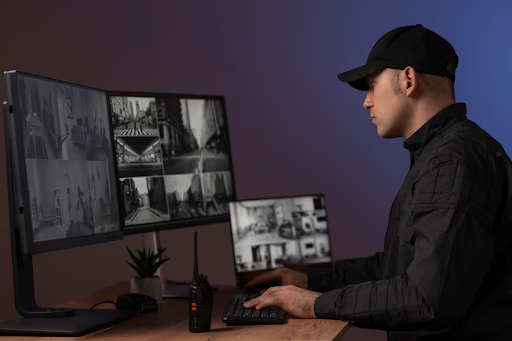Covert Surveillance in Sydney’s Integrity Testing Programs
In today’s business landscape, covert surveillance has become an integral tool for maintaining workplace integrity and preventing misconduct. In Sydney, many businesses use covert surveillance as part of their integrity testing programs to monitor and evaluate employee behavior, identify fraudulent activities, and uphold ethical standards. But how do companies balance the need for surveillance with legal compliance and employee trust? This article delves into the role of covert surveillance in Sydney, its implementation in integrity testing, and the ethical considerations that come with it.
What Is Covert Surveillance and How Does It Work in Sydney?
Defining Covert Surveillance
Covert surveillance involves discreetly observing and monitoring individuals without their knowledge. In the workplace, it is often used to gather information on employee activities to ensure compliance with company policies. In Sydney, covert surveillance can take various forms, such as hidden cameras, undercover monitoring, or discreet observation by investigators. This method allows businesses to uncover wrongdoing while minimizing disruption and maintaining normal operations.
Legal Guidelines for Covert Surveillance in Sydney
In Sydney, the use of covert surveillance is governed by strict laws and regulations. Employers must follow the
Workplace Surveillance Act 2005, which outlines the conditions under which monitoring is permissible. Covert surveillance cannot be implemented without a valid reason, such as investigating suspected misconduct, and must adhere to privacy guidelines to avoid infringing on employee rights. Businesses must ensure that their surveillance methods are legal, transparent, and ethically justified to avoid potential legal consequences.
Why Covert Surveillance Is Crucial in Integrity Testing
Identifying Fraud and Misconduct
One of the main reasons businesses in Sydney use covert surveillance is to identify and prevent fraud or misconduct. Whether it’s theft, data breaches, or policy violations, covert monitoring allows employers to collect evidence without alerting the suspected individuals. This evidence is vital for businesses when taking disciplinary action or reporting illegal activities to authorities.
Maintaining Employee Integrity and Accountability
Covert surveillance also plays a key role in maintaining employee accountability. By monitoring activities in the workplace, businesses can ensure that employees adhere to ethical standards and perform their duties responsibly. This type of surveillance helps deter dishonest behavior, as employees are more likely to remain accountable when they know that integrity testing programs are in place.
How Businesses in Sydney Implement Covert Surveillance
Choosing the Right Surveillance Techniques
In Sydney, businesses have access to various covert surveillance technologies. Hidden cameras, undercover agents, and electronic monitoring systems are among the most common techniques. The choice of method depends on the specific goals of the surveillance and the type of misconduct being investigated. Companies typically work with professional surveillance services in Sydney to ensure the equipment and techniques used are discreet, effective, and compliant with local laws.
Combining Covert Surveillance with Integrity Testing
Covert surveillance is often used alongside integrity testing programs to create a comprehensive strategy for monitoring employee behavior. Integrity testing may involve evaluating employee honesty through undercover audits, mystery shopping, or compliance assessments. When combined with covert surveillance, these programs provide businesses with a clearer picture of how employees behave when they believe they aren’t being watched, ensuring a robust approach to preventing fraud and ensuring accountability.
Ethical Considerations and Privacy Concerns in Covert Surveillance
Balancing Surveillance with Employee Privacy
One of the most significant concerns with covert surveillance is balancing it with employee privacy. While businesses have a right to monitor workplace activities, they must do so in a way that respects employee privacy. Surveillance should only be conducted in areas where privacy isn’t expected, such as workspaces, and never in areas like bathrooms or break rooms. Transparent communication about the use of surveillance and its purposes can also help maintain trust within the workforce.
How to Ensure Legal Compliance in Sydney
To ensure compliance with Sydney’s surveillance regulations, businesses must familiarize themselves with local laws, including the
Workplace Surveillance Act and other privacy-related legislation. Employers should seek legal counsel or work with experienced surveillance professionals to design programs that are both effective and lawful. Properly documented policies, clear communication with employees, and ensuring that surveillance is justified are key steps in preventing legal issues while maintaining an ethical approach to monitoring.
Conclusion
Covert surveillance is a critical tool in Sydney’s integrity testing programs, helping businesses maintain workplace honesty, prevent fraud, and ensure accountability. While it offers many benefits, it’s essential to balance surveillance with ethical considerations and comply with Sydney’s legal requirements. By integrating covert surveillance into integrity testing programs, businesses can foster a fair, secure, and transparent work environment while protecting their interests.
FAQs About Covert Surveillance in Sydney
What is covert surveillance, and how is it used in integrity testing?
Covert surveillance involves discreetly monitoring employee activities to detect misconduct, ensure compliance, and maintain workplace integrity. It’s often part of broader integrity testing programs.
Is covert surveillance legal in Sydney workplaces?
Yes, covert surveillance is legal in Sydney as long as it complies with the Workplace Surveillance Act 2005 and other relevant regulations. Employers must ensure that monitoring is justified, respects privacy, and follows legal guidelines.
How does covert surveillance help prevent fraud and misconduct in the workplace?
By monitoring employee behavior discreetly, covert surveillance helps businesses detect and address fraudulent activities, theft, policy violations, and other forms of misconduct before they escalate.
What are the privacy concerns associated with covert surveillance in Sydney?
Privacy concerns revolve around balancing the need for surveillance with employee rights. Employers must ensure surveillance is conducted ethically, only in appropriate areas, and that employees are aware of the company’s monitoring policies.
How can businesses in Sydney implement covert surveillance ethically?
Businesses can implement surveillance ethically by complying with legal guidelines, respecting
employee privacy, and ensuring that surveillance is necessary and proportional to the potential risks being addressed.



